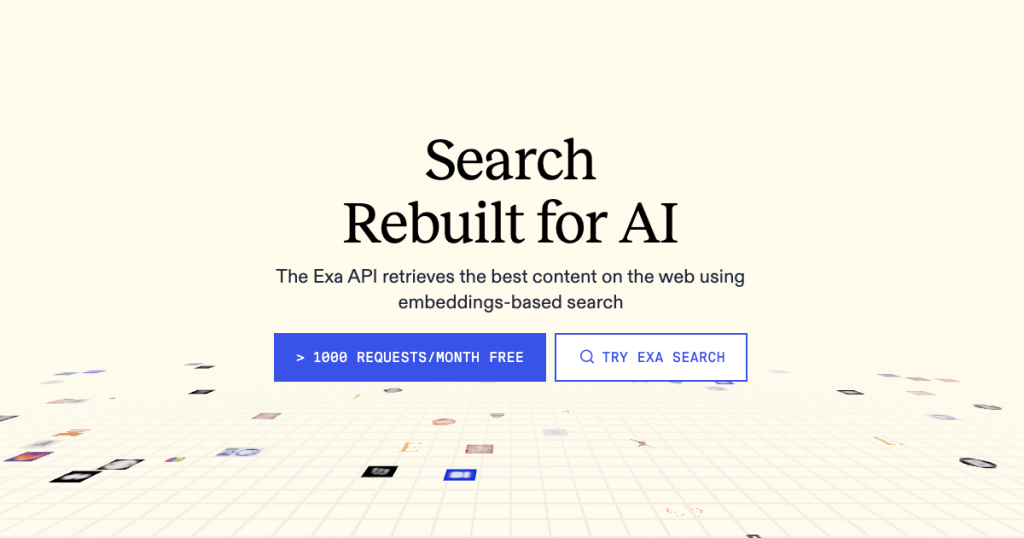While many startups are striving to replace Google with AI-powered search, Exa has a different approach: creating a search engine specifically for AI. According to the new startup’s founders, it’s not humans who need a new kind of search engine, but the AI platforms themselves. As AI increasingly integrates into corporate and consumer life, these platforms must frequently search the internet for accurate information and avoid hallucinations.

Exa is developing a tool that enables AI models to conduct web searches with an AI-native twist. Instead of relying on classic transformer-based language models, Exa uses a vector database and embeddings to build a machine learning model trained to understand links rather than words and sentences.
Transformers normally predict the next word. We train our search engine to predict the next link. So people share links on the web; we use that data as a dataset for our model that we train. And we train the model to predict the next link. So it’s a novel search algorithm.”
Will Bryk, CEO of Exa
On Monday, Exa announced a $17 million Series A funding round led by Lightspeed’s Guru Chahal, with participation from Nvidia’s venture arm NVentures and Y Combinator. This brings Exa’s total funding to $22 million, including a previous $5 million seed round.
“This is a very ambitious vision,” says Chahal. “What Google is to humans, they are building for AI.”
Exa was founded about a year before ChatGPT’s launch by best friends Will Bryk and Jeff Wang, who met during their freshman year at Harvard. Initially, their goal was to use AI to build a better search engine for humans. However, after the emergence of ChatGPT, AI companies began requesting an API version of Exa’s search engine to integrate into their models.
Located in San Francisco, Exa is part of the Cerebral Valley AI startup community. A tweet by Wang, seeking companies interested in ordering office nap pods, previously went viral, reflecting the work-nap-repeat culture prevalent in this tech sector.
AI companies are now Exa’s primary customers, with use cases ranging from AI chatbots searching the internet for information to companies curating training data. For instance, Databricks uses Exa to find large training sets for its model training initiatives.
Exa launched the API version of its product about a year ago, and it has gained significant traction since. “Since then it’s gotten a crazy amount of traction,” Wang says. Exa now serves thousands of developers, offering a free tier for limited use and multiple tiered-fee levels. While the founders did not disclose revenue figures, they noted that revenue is increasing. Notably, Exa hosts its product on AWS rather than Google Cloud, despite operating its own GPU cluster.
While Exa isn’t focused on disrupting Google’s search dominance, the rise of AI could position search engines for AI bots as a potential threat to the search hegemony.







